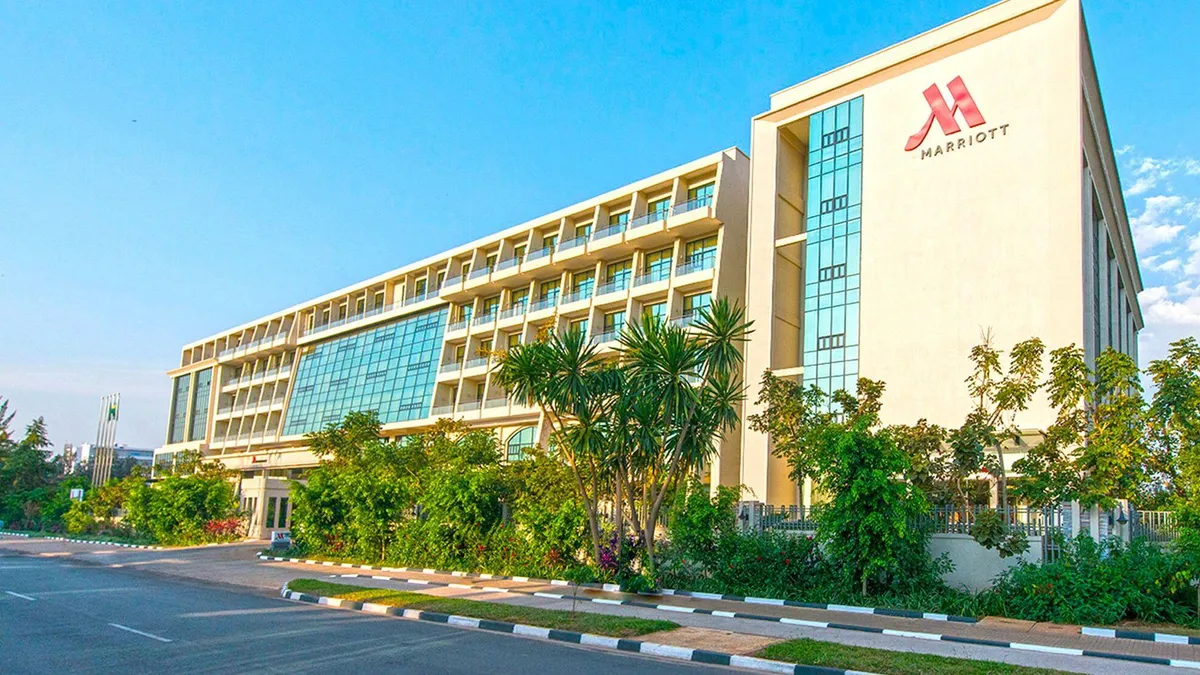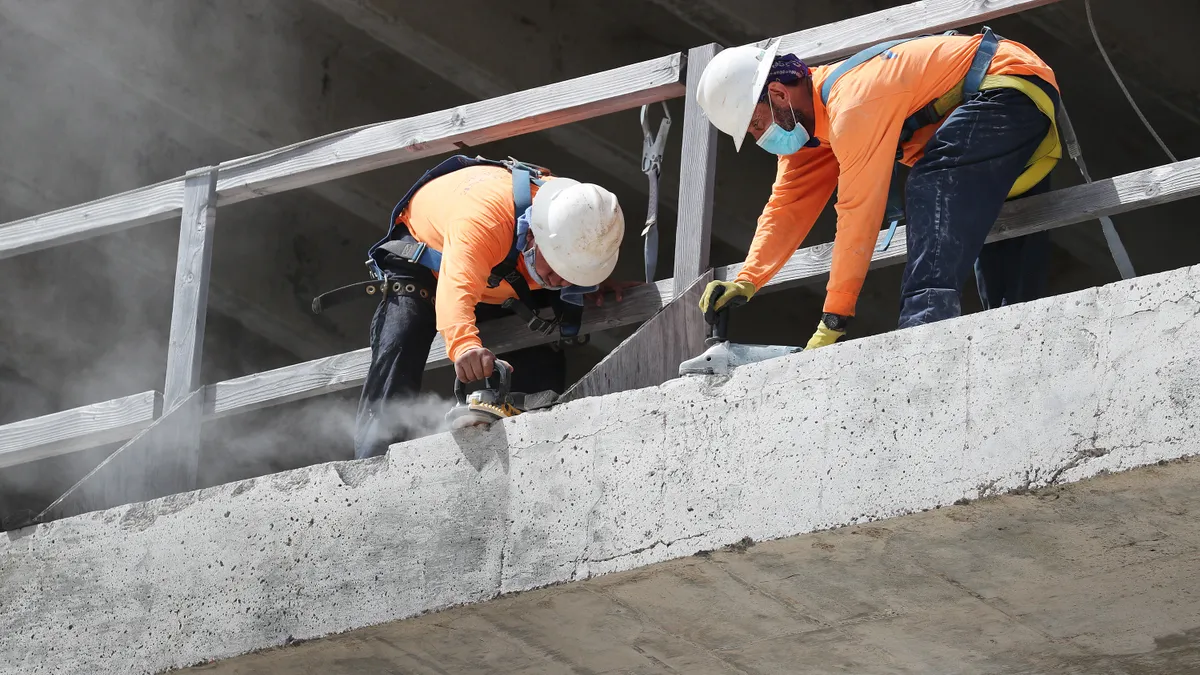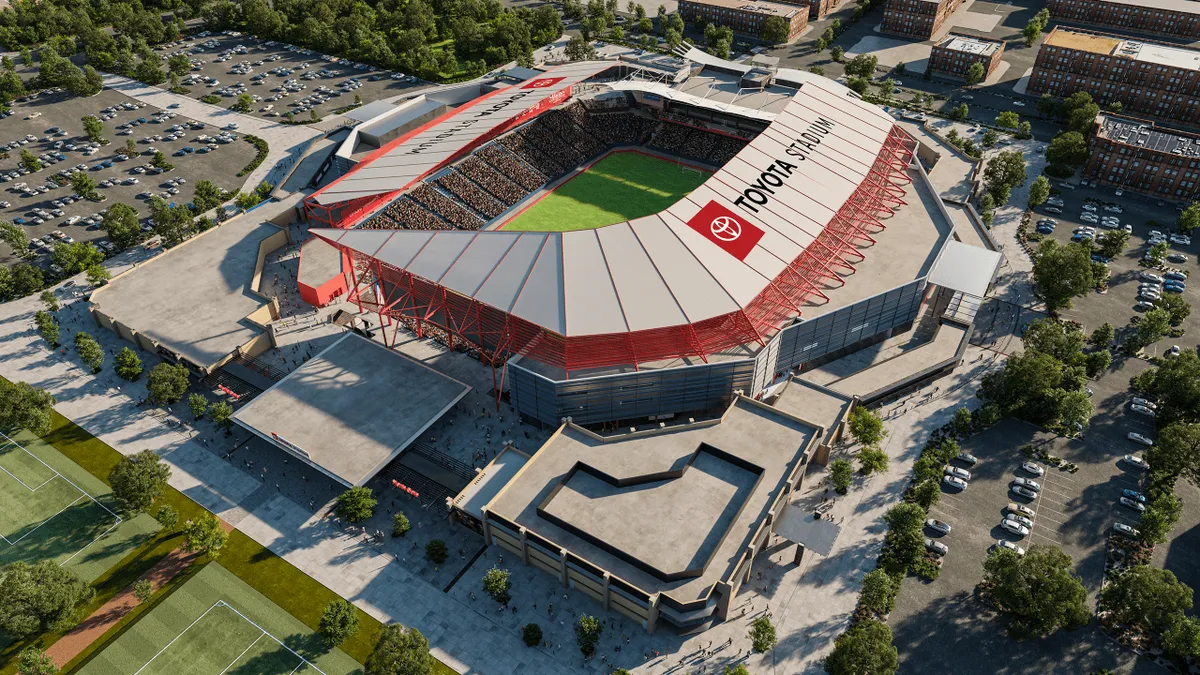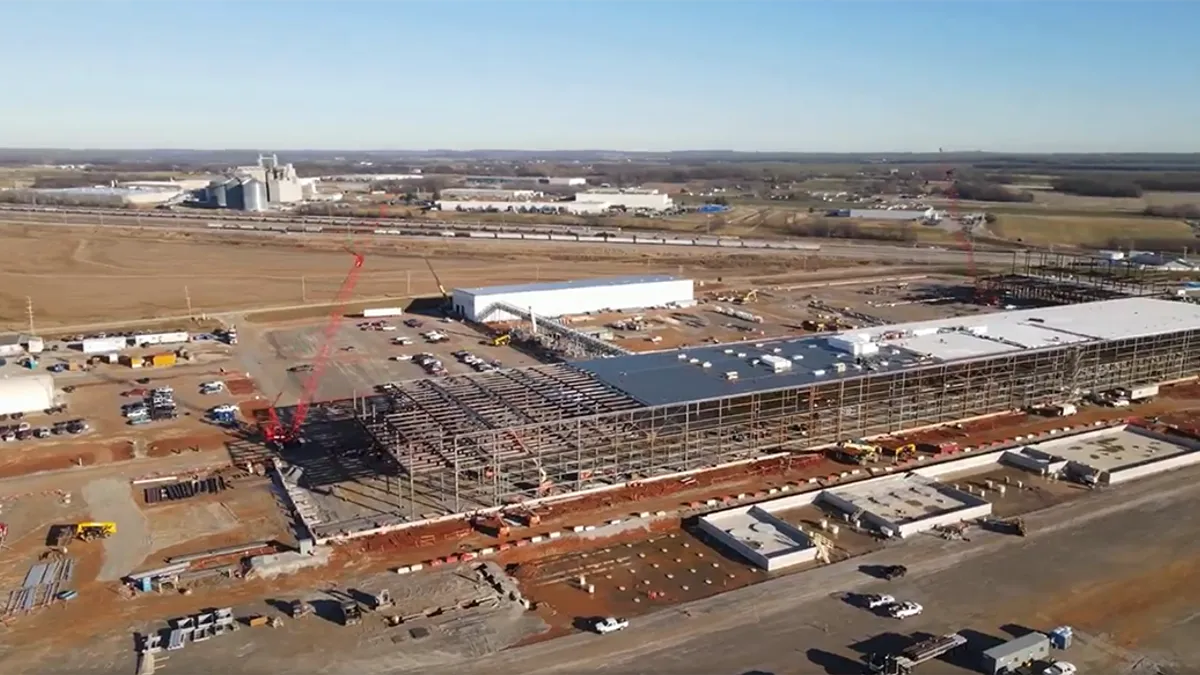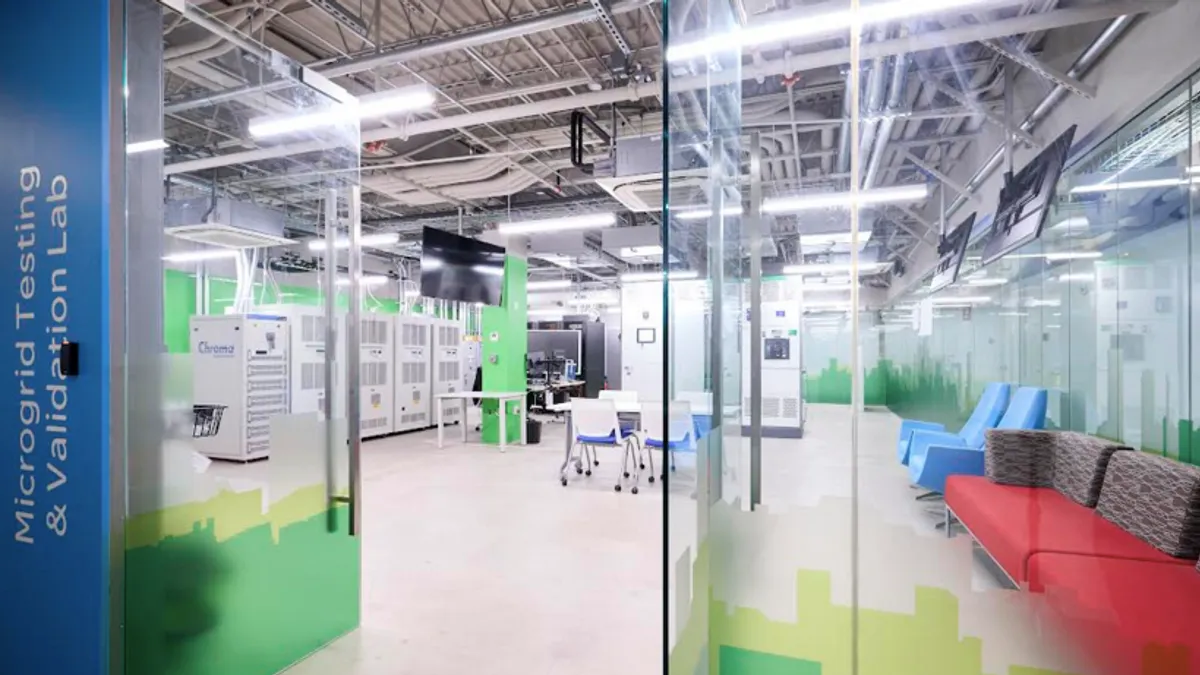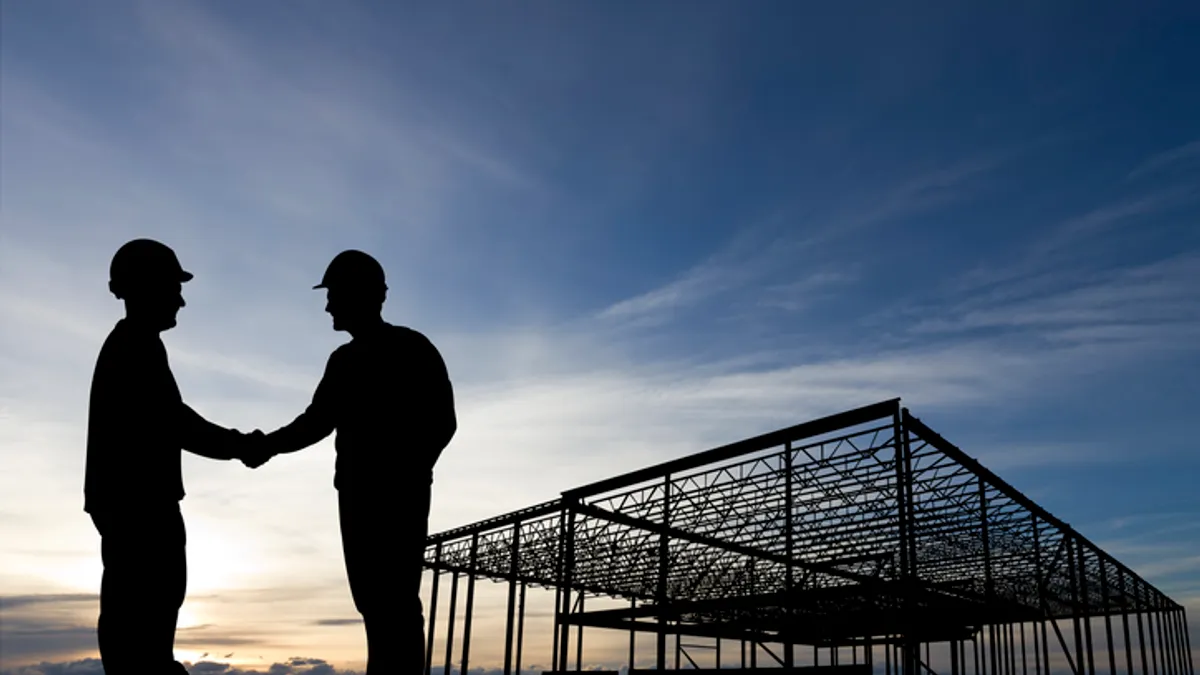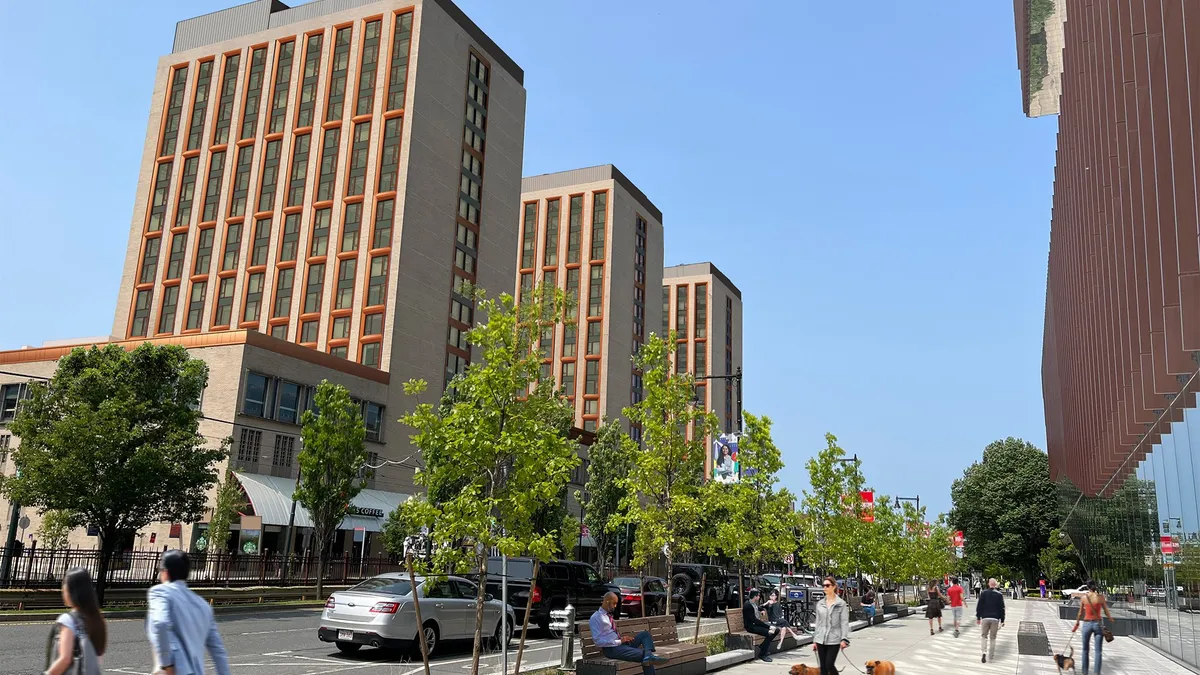A hotel renovation has a unique end goal — generate enough appeal so potential guests want to take up residence, whether that's for a day or a week or more. The major hotel chains are refreshing their units with a wide array of features and amenities patrons now expect, like work spaces, upscale retail shops and keyless room entry.
“When [hotels] take on a renovation, they're trying to replicate the trends we're seeing in new hotel construction to the extent possible,” said Nathan Gundrum, vice president real estate development at Mortenson.
Besides adapting to changing consumer and industry trends, hotel renovations take place, said Adam Docks, real estate attorney at Perkins Coie in Chicago, for a variety of reasons, including a conversion from an independent hotel to a franchise, a rebranding from one chain to another or simply a refresh of an older hotel.
Here are the major trends taking place in hotel renovations nationwide.
Guest rooms
The building's transformation can be significant, starting with the very feature that makes a hotel a hotel — guest rooms. Rooms are getting smaller, Docks said, and depending on the project, owners can reduce room counts to add suites or meeting spaces or to divide up oversized guest rooms. The opposite is true sometimes as well, he said, with hotels combining smaller rooms into one large suite (although the trend is skewing toward less room square footage).
The smaller room trend, Docks said, is representative of millennials' preference for social interaction. And hotels would be foolish to ignore the millennial customer as the latest surveys reveal that despite the popularity of Airbnb and other home-sharing lodging options, people born from 1982 to 2004 still prefer staying in a hotel when given a choice among various types of accommodations.
Hotel rooms also are getting smarter, Docks said. One of the most significant developments is that guests at some locations now can access their rooms using their smartphones instead of keys. Hilton, Hyatt and Marriott are in various phases of a digital key rollout, allowing guests to use their phones not only for room entry but also for check in, check out, room selection and access to other hotel amenities.
“This is the biggest game changer for a guest from a tech perspective,” Gundrum said.
Amenities
The design of everything from lobbies to rooms to amenity space, Gundrum said, should encourage customers to view the hotel as a destination and to get guests out of their rooms. These guest offerings, Docks added, are increasingly about experiences they can't have anywhere else and building relationships as they go along.
Rooftop bars that create a flow between indoor and outdoor spaces, work-area accommodations designed for and driven by the co-working trend, and a great room in place of a divided lobby, Gundrum said, are what hotel executives are convinced will increase their customer bases. Hotels are taking advantage of that great room concept, he said, and integrating bars and restaurants into the lobby, rather than maintaining standalone dining and drinking establishments.
Marriott in particular, he said, has taken the idea of bartender as the quarterback of all lobby activity to a new level in some of its hotels. For example, at its Moxy brand, guests go to the bartender to check in and get their key cards. So, it's conceivable, Gundrum said, that as the bartender hands one guest his or her key and serves another cocktail at the same time. “That brand has done quite well,” he said.
Local elements also factor big into hotel renovations, Gundrum said, adding hotels are incorporating artisanal food and regional features to differentiate their brands.
Retail
On-site retail has long been a way for hotels to drive traffic and to provide convenience for guests, but gone are the days when shopping options were limited to a hotel gift shop with slogan-filed T-shirts and other souvenirs. Obviously, the more upscale the hotel, the more upscale retail offerings will be, said Miguel Maal with OC&C Strategy Consultants. But one thing is for sure: People on vacation tend to spend more money than business travelers, justifying those purchases as one-offs they can't buy at home.
Retail establishments in hotels, Maal said, are in unique positions, because they can build a relationship with a guest during that person's stay, which is more likely to result in sales. "The relationships you create," he said, "expand your ability to sell to that person."
But hotels will move quickly to replace a store or restaurant if it is not generating enough revenue, Maal noted. During a renovation, he said, the hotel management may decide to replace an underperforming retail outlet with an in-house retail offering or with some other amenity like a spa or gym. "Hotels are constantly thinking about how to maximize their space," he added.
Security
Designing for security is something most hotels do during renovations as well as new construction, Gundrum said, but because each property is in a different location and has a varying layout, there’s not really a template for security features.
“There are certainly things we do from a design perspective to be smart about security,” he said. This includes adding security cameras, positioning the front desk relative to the entrance and creating bollards at entryways, although that last item is decided on a case-by-case basis.
In the wake of the October mass shooting in Las Vegas, where a gunman used a hotel to carry out the deadly shooting, Docks said safety and security are foremost on hoteliers' minds. “It’s the unfortunate reality of where we are today,” he said. “That may impact design and construction down the road.”


